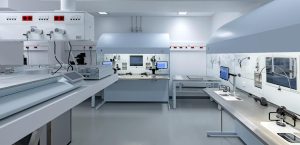The medical and pharmaceutical industries are known for their stringent regulations, high precision requirements, and the need for rapid innovation. In such a demanding landscape, turnkey manufacturing has emerged as a vital strategy to streamline production processes, ensure regulatory compliance, and accelerate time-to-market for new products. This blog delves into the nuances of turnkey manufacturing within the medical and pharmaceutical sectors, highlighting its benefits, challenges, and transformative impact.
Understanding Turnkey Manufacturing
Turnkey manufacturing involves a single provider managing the entire production process from concept to completion. This includes design and development, sourcing and procurement, manufacturing, quality assurance, and logistics. In essence, turnkey manufacturers deliver a ready-to-use product, allowing companies to focus on their core competencies such as research and development, marketing, and sales.
Key Components of Turnkey Manufacturing in Medical and Pharma
- Design and Development: This initial phase involves collaboration between the turnkey manufacturer and the client to conceptualize and refine product designs. In the medical and pharmaceutical fields, this step is crucial as it must comply with stringent regulatory requirements and address specific therapeutic needs.
- Regulatory Compliance: Ensuring that products meet all regulatory standards is a major aspect of the medical and pharmaceutical industries. Turnkey manufacturers are well-versed in navigating the complex regulatory landscape, including FDA, EMA, and other international standards.
- Sourcing and Procurement: Selecting high-quality raw materials and components is vital. Turnkey manufacturers leverage their established supplier networks to source materials that meet the stringent standards of medical and pharmaceutical products.
- Manufacturing and Assembly: Advanced manufacturing techniques, including cleanroom environments, automation, and precision engineering, are employed to produce high-quality medical devices and pharmaceutical products.
- Quality Assurance and Testing: Rigorous testing protocols, including biocompatibility tests, stability studies, and performance validation, are implemented to ensure that products meet all required safety and efficacy standards.
- Packaging and Labeling: Proper packaging and accurate labeling are critical, especially in pharmaceuticals, where dosage and usage information must be clear and precise. Turnkey manufacturers handle all aspects of this process to comply with regulatory requirements.
- Logistics and Delivery: Finally, turnkey manufacturers manage the logistics, ensuring that the products are delivered safely and on time to their intended destinations.
Benefits of Turnkey Manufacturing in Medical and Pharma
1. Regulatory Expertise
The medical and pharmaceutical industries are heavily regulated. Turnkey manufacturers bring extensive knowledge of regulatory requirements, ensuring that all products meet the necessary standards. This reduces the risk of non-compliance and associated penalties.
2. Cost Efficiency
Turnkey manufacturing can significantly reduce costs by streamlining processes and leveraging economies of scale. By managing the entire production process, turnkey providers can optimize resource use and minimize waste, resulting in cost savings.
3. Accelerated Time-to-Market
Speed is critical in the medical and pharmaceutical sectors, where timely delivery of new treatments and devices can have life-saving implications. Turnkey manufacturing accelerates the production timeline by eliminating bottlenecks and ensuring a seamless transition from one phase to the next.
4. Enhanced Quality Control
Turnkey manufacturers implement stringent quality control measures at every stage of production. This comprehensive approach ensures that the final products are of the highest quality, reducing the risk of defects and recalls.
5. Focus on Core Competencies
Outsourcing manufacturing to a turnkey provider allows medical and pharmaceutical companies to concentrate on their core competencies, such as research and development, marketing, and patient care. This focus can drive innovation and improve overall business performance.
Challenges of Turnkey Manufacturing in Medical and Pharma
1. High Initial Investment
Transitioning to a turnkey manufacturing model can require a substantial initial investment. Companies must be prepared for the costs associated with selecting a partner, transferring knowledge, and setting up integrated processes.
2. Dependency on a Single Supplier
Relying on a single turnkey manufacturer can pose risks, such as supply chain disruptions or operational issues within the manufacturing partner. It is crucial to conduct thorough due diligence and establish contingency plans.
3. Intellectual Property Concerns
Sharing proprietary information with a third-party manufacturer can raise intellectual property concerns. Companies need to implement robust legal agreements and confidentiality measures to protect their innovations.
4. Loss of Direct Control
Outsourcing the entire production process means relinquishing a certain degree of control. Companies must establish effective communication channels and collaboration strategies to ensure that their vision and standards are maintained.
Impact on the Medical and Pharmaceutical Industries
Medical Devices
The medical device industry benefits immensely from turnkey manufacturing. The development and production of devices such as diagnostic equipment, surgical instruments, and implantable devices require high precision and compliance with strict regulations. Turnkey manufacturers provide the expertise and infrastructure needed to produce these complex products efficiently and reliably.
Pharmaceuticals
In the pharmaceutical sector, turnkey manufacturing plays a crucial role in the production of drugs, vaccines, and biologics. The ability to streamline processes from formulation to final packaging ensures that pharmaceuticals meet quality standards and are delivered to the market promptly. This is particularly important in responding to public health crises, such as the rapid development and distribution of COVID-19 vaccines.
Personalized Medicine
The rise of personalized medicine, which involves tailoring treatments to individual patients, presents unique manufacturing challenges. Turnkey manufacturers are equipped to handle the customized production requirements of personalized therapies, ensuring that these advanced treatments are produced accurately and efficiently.
Biotechnology
The biotechnology industry, with its focus on cutting-edge treatments and therapies, also benefits from turnkey manufacturing. The production of biologics, gene therapies, and other biotech products requires specialized knowledge and facilities that turnkey manufacturers can provide. This support allows biotech companies to bring innovative treatments to market more quickly.
Case Studies: Turnkey Manufacturing Success Stories
Case Study 1: Rapid Vaccine Production
During the COVID-19 pandemic, several pharmaceutical companies partnered with turnkey manufacturers to accelerate vaccine production. These partnerships enabled the rapid scaling of manufacturing processes, ensuring that vaccines were produced in large quantities and distributed worldwide in record time. The collaboration between pharmaceutical companies and turnkey manufacturers was crucial in the global response to the pandemic.
Case Study 2: Innovative Medical Device Development
A leading medical device company collaborated with a turnkey manufacturer to develop a new diagnostic tool. The turnkey manufacturer provided end-to-end support, from initial design and prototyping to regulatory approval and mass production. This partnership allowed the medical device company to bring the innovative product to market faster, ultimately improving patient outcomes.
Case Study 3: Streamlined Pharmaceutical Production
A pharmaceutical company facing challenges with in-house production quality and efficiency turned to a turnkey manufacturer for help. The turnkey provider implemented advanced manufacturing techniques and stringent quality control measures, resulting in a significant improvement in product quality and a reduction in production costs. This partnership enabled the pharmaceutical company to meet increasing demand while maintaining high standards.
Future Trends in Turnkey Manufacturing for Medical and Pharma
Digital Transformation
The integration of digital technologies, such as the Internet of Things (IoT), artificial intelligence (AI), and blockchain, is set to revolutionize turnkey manufacturing in the medical and pharmaceutical sectors. These technologies can enhance traceability, improve quality control, and optimize supply chain management, further streamlining the production process.
Advanced Automation
The adoption of advanced automation technologies, including robotics and machine learning, will continue to enhance the efficiency and precision of turnkey manufacturing. These advancements will enable the production of highly complex medical devices and pharmaceuticals with greater accuracy and consistency.
Sustainable Manufacturing
Sustainability is becoming increasingly important in the medical and pharmaceutical industries. Turnkey manufacturers are adopting eco-friendly practices, such as reducing waste, minimizing energy consumption, and using sustainable materials. These efforts contribute to environmental conservation and meet the growing demand for sustainable products.
Personalized and Precision Medicine
As personalized and precision medicine continues to evolve, turnkey manufacturers will play a crucial role in producing customized treatments and therapies. This trend will require manufacturers to implement flexible and adaptable production processes to meet the unique needs of individual patients.
Conclusion
Turnkey manufacturing is transforming the medical and pharmaceutical industries by providing a comprehensive, efficient, and reliable solution for product development and production. By leveraging the expertise and infrastructure of turnkey manufacturers, companies can streamline their operations, reduce costs, accelerate time-to-market, and focus on innovation. While challenges exist, the benefits of turnkey manufacturing make it a compelling strategy for companies looking to thrive in the competitive and highly regulated medical and pharmaceutical sectors. As technology continues to advance and the demand for high-quality, personalized treatments grows, turnkey manufacturing will undoubtedly play an increasingly vital role in shaping the future of these industries.











